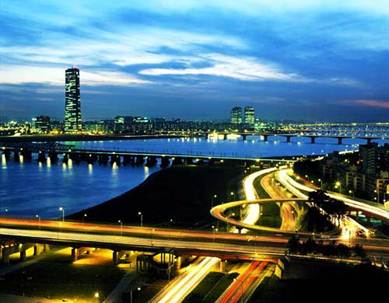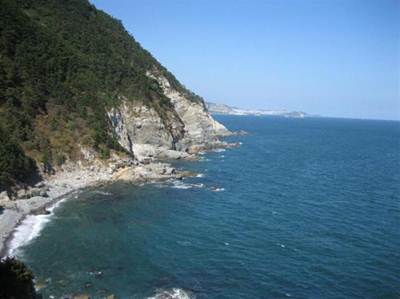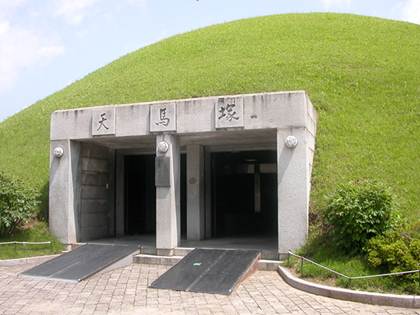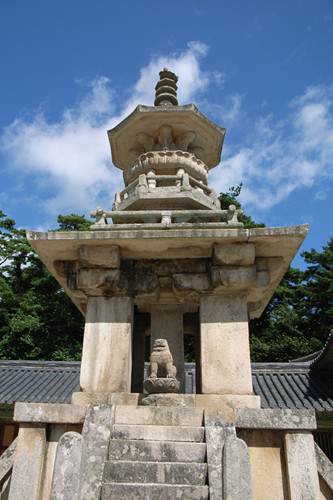Most of the Korean history was under the
dominance of empires. The isolation of Korea in 19th century brings
it a name called “Hermit Kingdom”, and in those sad periods, Korea was still
dependent on external forces.
The Japanese Army invaded Korea in 1910 and
behaved very badly towards this country. After that, after World War II, the
Korean Peninsula was destroyed by the Cold War between US – UK and Russia –
China. Since 1950 to 1953, approximately 3 million people were detained and the
country was separated by Demilitarized Zone.
During the past, Korea has been discovered
and influenced by foreign countries. Along the streets, it was popular to see
many Western people. However, some recent outstanding economic achievements of
Korea really change its complexion and trade to other nations.
Korea has just been ranked the 15th powerful
country of economics and there are some Koreans present in the leader
department of UN. They used to host Olympic Games in 1988, FIFA World Cup in
2002 and Sports Festival in 2011. One of the Korean football players – Park
Ji-Sung – has been playing for Manchester United. Korea seems to be confirming
their positions in all aspects and welcomes all tourists coming to this nation.
Most Western tourists choose Seoul Capital
– the most active Asian city with a population of 10 million - as their
destination. Korea pays lots of attention to the drawbacks of mass production
and the positive side of value chain combination. Concurrently, they do focus
on their own brands. Korea used to hire an English – Iraqis engineer – Zaha
Hadid – to build Dongdaemun Design Plaza and Park. This is a construction
including buildings that are arranged along the curves of Hadid’s signature and
they were built next to the stadium. The construction was late according to the
plan with the title World Design Capital 2010. But once it is completed, it
will include a multifunction part, fashion shops and an underground shopping
mall; all are located under a grass roof. Seoul wants it to be the fashion
center of Asia Pacific area.

Seoul
at night
If Seoul is the first destination,
Gyeongsang in the South should be perfect to finish the journey. We drove a
small car of a Korean top brand, Hyundai. Veloster is an illustration of the
globalization of car industry here: all main materials are imported from California;
its design is luxury with big anti-shock wheels. The difference is it has 2
doors on the same side; it is different from other normal cars which have 2
doors on 2 sides. This idea helps the back passengers to move into the car more
easily. However, it causes some irritations for people who have greater height
than Korean’s average height.
Driving in Korea is not for weak-hearted
people. The accident risk is one of the world’s highest with the rate of 30/100,000
accidents per year, five times as much as UK. If you are supposed to drive, be
careful because 9 out of 10 roads are really messy, motor lanes are not
available, trucks and cars are in a cram, vehicles turn in a sudden and trucks
are always running without lights at night.
After arriving at the second city, Busan,
safe and sound, we headed for the north to visit underwater King Munmu’s
Mausoleum. There, tourists will park next to a stand selling fried cuttlefish –
a dish warmed by coal. 30 yard towards the sea located a rock range symbolized
for the King’s rest place. Munmu, a Korean hero, governed Silla Kingdom in 20
years until he died in 681 A.D. Before passing out, he ate the last plate of Kimchi
and told his son “A country can’t be lack of a King, and you will replace me.
Let my dead body lie under those rock ranges, where the whales are living.
Then, I will turn into a dragon and protect this country off the invaders”.
This story made many foreigners suspect, then it faded away.

Busan
From the coast, we went to the land,
passing yellow rice fields to make for Gyeongju, which is the ancient capital
of Korea. It witnessed the gold period of Silla emperor – the strongest and
most prosperous of Korea when it had not integrated completely. Korean Buddhism
said that this is the sole place where you can feel breath of the past most
clearly (of course, now Korea has other religions as well, 50% of Korean are Christians).
200-year-old tombs arising from the ground
like cakes covered by grass drew much of our attention. Tomb areas are
prominent destinations at night, but they soon sink into silence and mysteries.
Tourists can see the whole scene from the summit of the hill.
One of the tomb is Cheonmachong, considered
“tomb of the heaven horse”, was excavated recently and revealed the remedial
design of this construction. The carcass is laid in a wood coffin. It will soon
dispose because of heavy stones and clay on cover of the coffin. It is found
that much stuff made of gold was buried with an unnamed King’s carcass in 16th
– 17th century. This is much more interesting than visiting tombs in
Egyptian Pyramids.

Cheonmachong
tomb
We had dinner in a local restaurant - Lee-Jo-Han-Jung-Seek.
Sitting on the warm floor with a short table, we had fish, beef and wild
mushroom. Here we had sundubu jjigae – the special spicy tofu; hwangnam – read bean
bread and Kimchi which had been fermented for a long time. In addition, there
was the traditional fermented rice wine of the Korean.
Different from local people, Western people
have lots of risks upon driving to the inner cities of Korea. Although most
signs are in Latin labels, the names of streets are unrecognizable sometimes.
Cities are divided into “dong” or “district”, but the building numbers are not
in a range. The numbers are based on the time at which the buildings are built,
making everyone even the Korean gets lost easily. This is the reason why the
satnav software of translating Korean into English becomes a must-have in
newly-built building.
Driving to the countryside always delivers
a comfortable feeling to tourists, especially when it turns into colorful
autumn. We got up early, drove off the hill to visit Bulguksa Pagoda and Seokguram
Cave. The temple above Seokguram is so beautiful with a statue of Buddhist
looking towards the sea. It is a unique artwork with unruffled trait on the
Buddhist’s face. But tourists were a little bit confused when having to
contemplate it through a glass. After that, we turned back to Veloster and
passed the hill to Busan.

Bulguksa
Pagoda
Jagalchi fish market is one of the biggest
over the world although it is still in the old market format. In the giant
Busan harbor, it is not difficult to find the fish market right before entering
Jung-gu District: follow the odor you smell. There is heaps of seafood:
octopus, cuttlefish, anemones fish, eel, oyster, flounder, etc. all of which
are trying to get out of the plastic bucks. Most people in the market are
women. Their tasks are dissecting skin or bones. They have been doing this day
after day, year after year. It opens from 8 a.m to 10 p.m. The scene becomes
highlighted in the dark, like in Blade Runner film.
After a hard-working day full of fish odor,
nothing is as wonderful as enjoying sauna time – jjimjibang. Sauna places in
Korea look strange; many lay down on the floor because they come not only to
relax but to sleep as well. The sauna we went to was located in Shinsegae
Centum City – where the biggest department store recorded in Guinness is
situated.
When entering the sauna, you will be given
a brown short and a pull. We didn’t understand why we had to keep these on,
because usually, we naked in sauna places. All therapies like hot sauna or cold
sauna are translated in to Latin, Finnish, Turkish, and Egyptian. After that,
we enjoyed such a wonderful massage: muscles and skin tissues are expanded by
finger, palms and elbows.
After relaxing minutes in sauna, we went
along the high way to Seoul and got on the train. There is a rapid train system
called KTX in Korea, connecting Busan and Capital within only 2 hours. Despites
crowded train, the customer care is very good. If you are in Paris or Brussels,
you must be careful so that your knees won’t get hurt when encountering some
students who use the skating board pumping into the platforms. Meanwhile, the
ticket collector will bow to passengers when the door slightly opens.